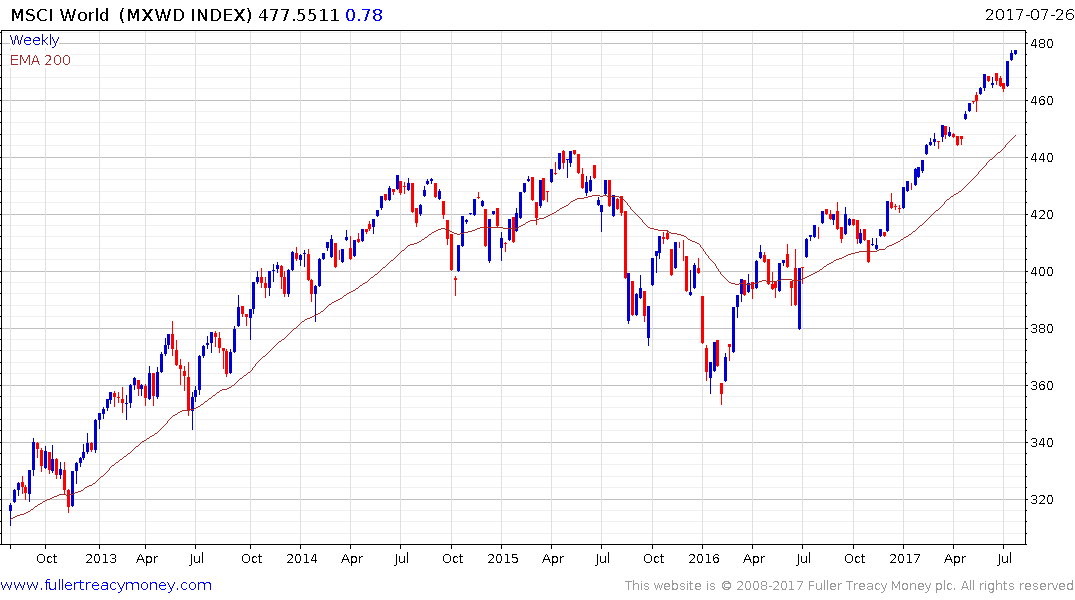The House View
Thanks to a subscriber for this report from Deutsche Bank which may be of interest to subscribers. Here is a section:
As markets enter into the summer lull, it is useful to take a step back. The global economy is in better shape than it has been in several years. This has allowed other central banks to follow the Fed and gradually start their exit journey, a process that is a historic challenge given the unprecedented level of monetary accommodation. But with inflation still below target, a key part of the normalisation puzzle is still missing.
Although labour market tightness has not yet fed to wages, and hence to inflation, we expect it will. Core inflation should move higher over the medium-term in the US and Europe, supporting further monetary tightening and a normalisation of yield curves. While no policy change is expected by the Fed on 26-July, an announcement to begin phasing out its balance sheet reinvestment is likely in September and we expect another rate hike in December. As for the ECB, rate hikes are still far off, and we expect the central bank to announce another QE extension and tapering in October.
Our global macro outlook is little changed this year. We expect growth to rebound from the slowest pace post-crisis in 2016, though relative to consensus we are more positive on the US and more bearish on Japan. In China, we continue to expect a gradual deceleration, but see upside risks to growth in the second half of the year.
We are generally constructive on risk assets, expecting material upside to US equities in the next 18 months and positive but more balanced performance in EM. There are signs the dollar has peaked, but we do not expect a material devaluation yet. We are more positive on the euro, seeing upside versus the dollar and sterling. We expect yield curves to normalise gradually, but there is risk of a more sudden upward shift, depending on the path of core inflation.
Here is a link to the full report.
Gradual monetary tightening against a background of improving global growth is about as benign a scenario for markets as one might wish for. It certainly beats the alternative.
I have been arguing for years it would be difficult for inflation to pose a problem, even following such enormous monetary accommodation, for as long as the Velocity of Money was trending lower. The measure is updated quarterly, with a quarterly lag, but at the last update in March it extended its downtrend again.
The disintermediation represented by the internet remains a powerful deflationary force; with its most striking influence exhibited by Amazon’s continued rise at the expense of main street businesses. The question of how workers will gain at the expense of corporations in wage negotiations when the latter function in a global marketplace and can arbitrage for costs across countries remains an open sore and a major source of the rising tide of populism. Wage growth represents a major source of inflation and in its absence central banks will be under considerably less pressure to hike rates aggressively.

Meanwhile if we think of the MSCI World as a reasonable global benchmark there is no evidence of top formation development so we can continue to give the benefit of the doubt to the upside.


